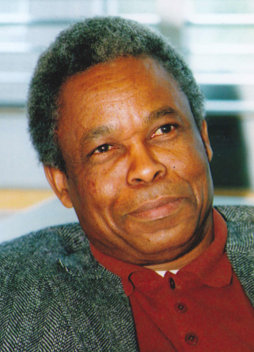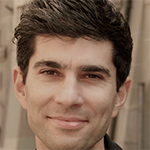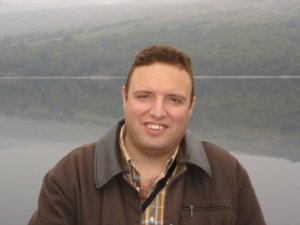Plenary lectures (~1 hour):
 Lloyd Demetrius (Max
Planck Institute for Molecular Genetics at
Berlin, Germany, and the Department of
Organismic and Evolutionary biology, Harvard
University) homepage
Lloyd Demetrius (Max
Planck Institute for Molecular Genetics at
Berlin, Germany, and the Department of
Organismic and Evolutionary biology, Harvard
University) homepage
Aging, Cancer
and Neurodegenerative diseases
Abstract: TBA
 Pedro G Ferreira (i3S,
Porto) homepage
Pedro G Ferreira (i3S,
Porto) homepage
Title: Patterns
of gene expression across multiple
tissues and individuals
Abstract: The emergence of
high-throughput sequencing has brought
substantial advances in human population and
cancer genomics research. The current pace
of advance of this technology made possible
to assay with high depth of coverage the DNA
sequence and the transcriptomes of hundreds
of samples. The drop in the costs allowing
the sequencing of increasingly larger
cohorts creates an unprecendent explosion of
data. Several large-scale projects are
dedicated to the comprehensive sequencing,
characterization and analysis of the genomic
changes in different types of tumors, cell
lines or tissues. In this talk some of the
recent findings from projects that have
sequenced the transcriptome from hundreds of
individuals in a single or across multiple
tissues will be described. Their relevance
for population genomics and biomedical
research as well as the applied methodology
will be discussed.
 Miguel Rocha (Departamento
de Informática da Escola de Engenharia
da Universidade do Minho) homepage
Miguel Rocha (Departamento
de Informática da Escola de Engenharia
da Universidade do Minho) homepage
Title: In
silico metabolic engineering
Abstract: Metabolic
Engineering (ME) deals with designing
organisms with enhanced capabilities
regarding the productivities of desired
compounds. This field has received
increasing attention within the last few
years due to the extraordinary growth in the
adoption of white or industrial
biotechnological processes for the
production of bulk chemicals,
pharmaceuticals, food ingredients and
enzymes, among other products.
Many different approaches have been used to
aid in ME efforts that take available models
of metabolism together with mathematical
tools and/ or experimental data to identify
metabolic bottlenecks or targets for genetic
engineering. Our conceptual framework in the
development of tools for in silico ME relies
on three layers: accurate mathematical
models (in our case constraint-based
metabolic models), good simulation methods
(e.g. steady state simulations with flux
balance analysis) and robust strain
optimization algorithms based on
metaheuristics (e.g. Evolutionary
Algorithms, Simulated Annealing).
This framework gave rise to the OptFlux
platform, an open-source, user-friendly and
modular software aimed at being the
reference computational platform for ME
applications.
 Joel Arrais (DEI/FCTUC,
University of Coimbra) homepage
Joel Arrais (DEI/FCTUC,
University of Coimbra) homepage
Title:
Using time series data to
reconstruct gene signaling
networks
Abstract: Computational
Biology holds the promise to answer some of
the most fundamental questions about life.
Indeed, there are a deluxe of biological
data and computational models available,
but, despite that, the real value of those
has been hardly attained. In this
presentation the author will share his
personal experience in developing
computational models for biological problems
and the struggles to make them usable in
real world contexts.
We will focus on the use of time series data
to reconstruct gene signaling networks. Most
methods for reconstructing response networks
from high throughput data generate static
models which cannot distinguish between
early and late response stages. An improved
method that integrates time series and
static datasets to reconstruct dynamic
models of host response to stimulus will be
presented. It uses an Integer Programming
formulation to select a subset of pathways
that, together, explain the observed dynamic
responses. Applying to study human response
to HIV-1 led to accurate reconstruction of
several known regulatory and signaling
pathways and to novel mechanistic insights.
********************************************************************************************

Download the poster here
*********************************************************************